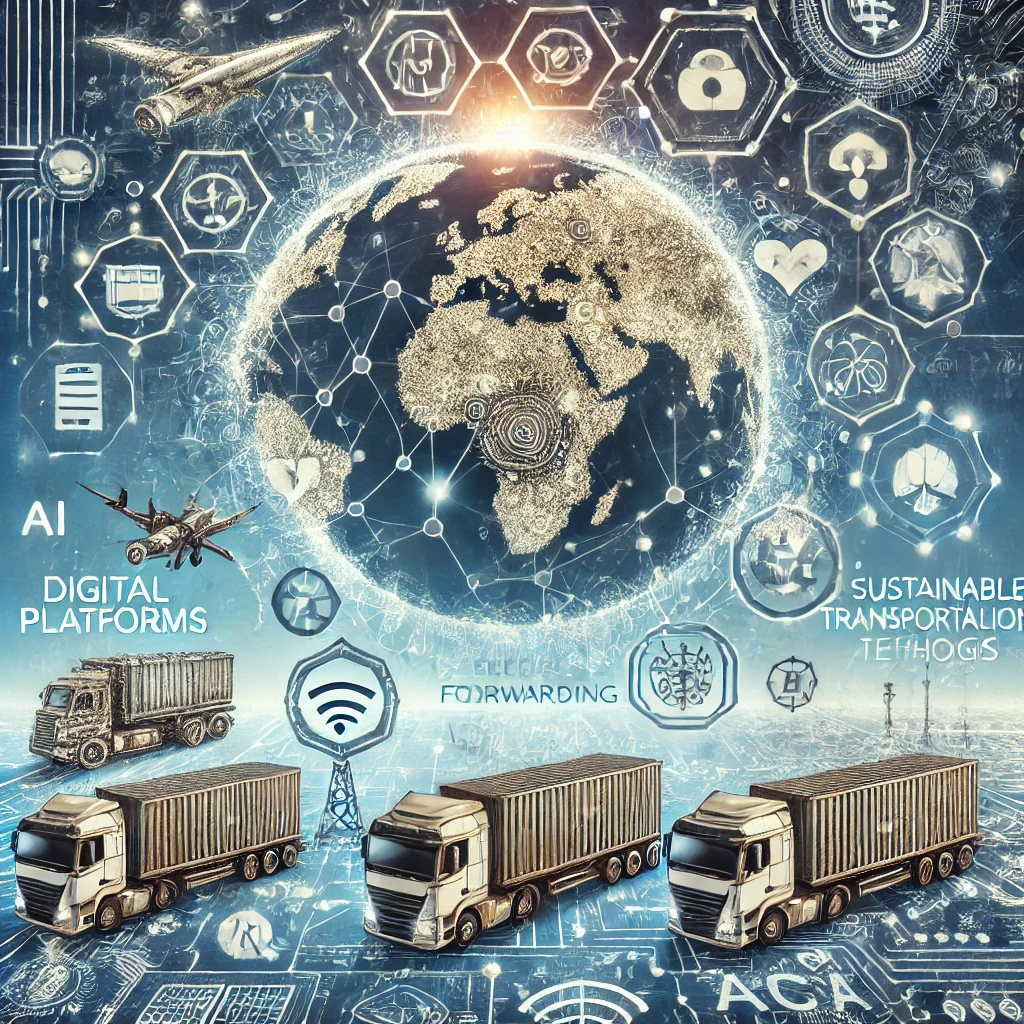The freight forwarding industry is at the heart of global trade, ensuring that goods move efficiently across borders and continents. However, as the world becomes more interconnected and digitalized, the freight forwarding industry is undergoing significant changes. Emerging trends and technologies are reshaping how freight forwarders operate, offering new opportunities for efficiency, transparency, and sustainability. In this blog post, we will explore the key trends and technologies that are set to define the future of freight forwarding.
1. Digitalization and Automation
One of the most transformative trends in freight forwarding is the digitalization of processes. Traditionally, freight forwarding has been a labor-intensive industry, relying heavily on manual processes and paper-based documentation. However, the rise of digital platforms and automation tools is changing this landscape.
Digital freight platforms are becoming increasingly popular, allowing shippers and freight forwarders to connect in real-time, compare rates, and book services with just a few clicks. These platforms streamline the entire process, from quoting and booking to tracking and invoicing, reducing the need for manual intervention and significantly cutting down on administrative costs.
Automation is also playing a crucial role in enhancing efficiency. For example, automated customs clearance systems can process large volumes of shipments quickly, reducing delays at borders. Additionally, robotic process automation (RPA) is being used to handle repetitive tasks, such as data entry and document processing, freeing up human workers to focus on more strategic activities.
2. Artificial Intelligence and Machine Learning
Artificial Intelligence (AI) and Machine Learning (ML) are poised to revolutionize the freight forwarding industry by enabling more intelligent and predictive decision-making. AI algorithms can analyze vast amounts of data from various sources, such as weather forecasts, traffic patterns, and historical shipping data, to predict potential disruptions and optimize routes.
Machine learning models can also help freight forwarders predict demand, allowing them to plan capacity more effectively and avoid overbooking or underutilization of resources. Additionally, AI-driven chatbots are increasingly being used for customer service, providing instant responses to common queries and improving the overall customer experience.
3. Blockchain Technology
Blockchain technology is gaining traction in the freight forwarding industry as a means of enhancing transparency and security in the supply chain. By providing a decentralized and immutable ledger of transactions, blockchain can help eliminate fraud, reduce errors, and increase trust among stakeholders.
One of the most promising applications of blockchain in freight forwarding is in the area of documentation. Shipping documents, such as bills of lading and certificates of origin, can be stored on a blockchain, ensuring that they are tamper-proof and easily accessible to all parties involved in the supply chain. This not only speeds up the documentation process but also reduces the risk of disputes.
Moreover, blockchain can facilitate more efficient payments by enabling smart contracts that automatically release funds when certain conditions are met, such as the delivery of goods. This can help reduce payment delays and improve cash flow for businesses.
4. Sustainability Initiatives
As concerns about climate change and environmental sustainability continue to grow, the freight forwarding industry is under increasing pressure to reduce its carbon footprint. This has led to the emergence of various sustainability initiatives aimed at making the industry more eco-friendly.
One of the key trends in this area is the adoption of greener transportation options. For example, some freight forwarders are exploring the use of electric trucks and alternative fuels, such as biofuels and hydrogen, to reduce emissions. Additionally, there is a growing emphasis on optimizing routes and consolidating shipments to minimize the environmental impact of transportation.
Another important trend is the use of carbon offset programs, where freight forwarders invest in projects that reduce or capture carbon emissions, such as reforestation or renewable energy projects, to compensate for the emissions generated by their operations. These initiatives not only help reduce the environmental impact of freight forwarding but also align with the sustainability goals of their clients.
5. The Rise of E-Commerce and Last-Mile Delivery
The rapid growth of e-commerce has had a profound impact on the freight forwarding industry, particularly in the area of last-mile delivery. As consumers increasingly demand faster and more convenient delivery options, freight forwarders are being forced to adapt to new logistics challenges.
One of the key trends in this area is the use of technology to improve last-mile delivery efficiency. For example, some companies are experimenting with drone deliveries and autonomous vehicles to speed up the delivery process. Additionally, there is a growing focus on optimizing delivery routes using AI and real-time data, as well as enhancing the customer experience through better tracking and communication tools.
Another important trend is the rise of micro-fulfillment centers, which are small, urban warehouses located close to consumers. These centers enable faster delivery times and reduce the need for long-haul transportation, which can help reduce costs and environmental impact.
Conclusion
The future of freight forwarding is being shaped by a combination of digitalization, automation, AI, blockchain, sustainability initiatives, and the rise of e-commerce. These trends and technologies are not only transforming the way freight forwarders operate but also creating new opportunities for efficiency, transparency, and customer satisfaction. As the industry continues to evolve, freight forwarders that embrace these innovations will be better positioned to thrive in an increasingly competitive and complex global marketplace. Contact SATSCO the best freight forwarding company in Saudi Arabia for all your freight forwarding needs
 عربي
عربي عربي
عربي